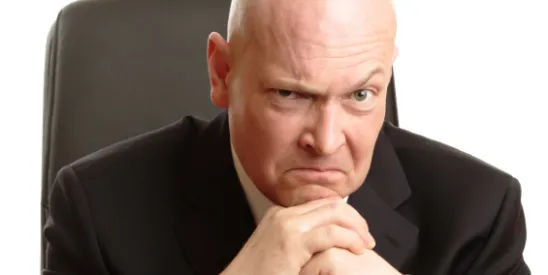Here we go again.
A few weeks back we reported on the plight of a CEO who was personally added to a TCPA lawsuit for trying to help his company comply with the law. This story might somehow be worse.
Two California residents—at least one of whom has never even visited the state of Texas—are being sued personally for TCPA violations in the state of Texas today after a court refused to dismiss either of them from the case. The case is Montelongo v. My Fin. Solutions Llc, No. SA-19-CV-00577-JKP, 2020 U.S. Dist. LEXIS 5755 (W.D. Tx. Jan. 14, 2020) and it is a doozy.
The first Defendant, Nick Caposio —apparently a call center employee—was personally named in the suit for allegedly making a call from a California call center to a Texas resident pitching his company’s lending products. Although Defendant contends it only called Plaintiff once, Plaintiff alleged that she asked Mr. Caposio to stop calls. Yet—she alleges—she received three additional calls from the same phone number, which she alleges is Mr. Caposio’s direct phone number. On this basis alone, the Court held, Mr. Caposio must face litigation in a jurisdiction he has never visited—his act of calling the Plaintiff and (allegedly) failing to heed her DNC instruction was enough to create “minimum contacts” with the state such that exercising jurisdiction over him was tolerable under the Texas long-arm statute. Translation: because Mr. Caposio called a Texas phone number for his employer he can be personally sued there and must theoretically stand trial in a state he has never been to.
Eesh.
Yet, things get even darker. Let’s discuss the fate of Angela Mirabella.
She did not place the calls at issue at all, but had the dubious task of overseeing Defendant’s TCPA compliance. So she too faces personal liability in the suit. Sound familiar?
As the Court frames matters, Ms. Mirabella had responsibility for “receiving, maintaining, investigating and responding to complaints about TCPA violations by My Financial Solutions LLC, its officers, agents and employees and for initiating disciplinary measures against the responsible party.” This is important because Plaintiff alleges the Defendant was sued on March 14, 2019 far away in Massachusetts and Plaintiff began receiving the same type of call from Defendant on April 10, 2019.
Pause.
Notice, the Complaint does not allege when the Massachusetts lawsuit was served. Theoretically Ms. Mirabella was never even aware of the far-flung lawsuit in Massachusetts. Nonetheless, the fact that Ms. Mirabella failed to stop calls less than a month after a case was filed—just filed folks— she can be held personally liable to Plaintiff in the state of Texas, where she has no continuous contacts:
After March 14, 2019, Mirabella had good reason to anticipate being hauled into court in any jurisdiction to which she directed automated and live telemarketing calls. Yet she continued to direct automated and live telemarketing calls into Texas for the purpose of soliciting business from Texans carrying student-loan debt.
My goodness.
By this logic, any corporate officer who has oversight over TCPA compliance can be held personally liable for future TCPA violations as little as 28 days after the company is first sued in a TCPA case. Come on now.
Yet the Court is clear that Ms. Mirabella will face a very high bar to escape potential liability:
[She] must show that she had no direct, personal involvement in the alleged wrongful conduct that violated the TCPA or directly controlled and authorized this conduct…
So the Court imposes the high burden on Defendant to prove that she lacked personal involvement in alleged conduct to justify dismissal. Otherwise she too must theoretically stand trial in Texas.
The take away here is as scary as they come: Courts continue to allow TCPA cases to proceed against individual defendants who act in their corporate capacity where there is direct involvement in the injury-producing acts–even if that involvement includes a purported failure of oversight. Obviously this is a terrible and unfair rule (in my opinion) and the extortionist (IMO) tactic of adding a low-level call center employee—who was in all likelihood just doing as he/she was told— to litigation in a bid to extract a settlement from a Defendant is a Busch league tactic of the worst variety (again IMO). Courts really should not tolerate this tactic and Defendants should not have to put up with it. Indeed, less than a year ago it looked like officer liability might be going the way of the dodo as a few well-reasoned opinions pushed back on the doctrine–especially where the theory was based on a failure of oversight, such as a lack of policies.
Without question, however, the idea that individuals can be personally-liable for TCPA violations committed by corporate entities is alive and well in certain jurisdictions. That means folks can face millions, or even billions, in personal liability for the acts of their employer. It’s just one more reason why TCPA class action defense requires a steady and experienced hand. Further, as the addition of officers and employees to TCPA suits becomes increasingly commonplace, training and compliance become more important than ever before. (Pro tip: it seems that relying on the advice of outside counsel in creating policies and procedures/effectuating training should provide some cover for compliance officers in certain circumstances but… we should talk.)
Be careful out there TCPAWorld!




 />i
/>i

